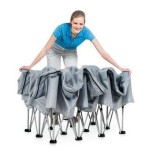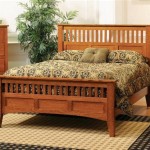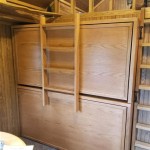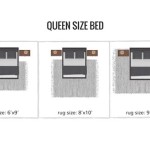Dog Bed Alternatives For Chewers
Many dog owners struggle with finding durable dog beds that can withstand the destructive chewing habits of their canine companions. Traditional dog beds, often filled with foam or fiberfill, can quickly become shredded and unusable for determined chewers. This not only creates a mess but can also pose a choking hazard. Fortunately, several alternatives exist that cater to dogs with a penchant for chewing.
One popular alternative is the elevated dog bed, also known as a cot-style bed. These beds consist of a raised frame, typically made of metal or durable plastic, with a stretched, breathable fabric surface. The elevated design keeps the dog off the ground, promoting airflow and preventing overheating. Because there is no stuffing to tear apart, these beds are significantly more resistant to chewing. However, some dogs may still attempt to chew the fabric, so choosing a bed with heavy-duty, rip-stop material is recommended. Additionally, elevated beds are particularly beneficial for older dogs or those with joint issues, as they offer support and ease pressure points.
Durable chew-resistant dog beds are another option for destructive chewers. These beds are specifically designed with tough, tear-resistant materials like ballistic nylon or Kevlar. They often feature reinforced seams and minimal stuffing, further reducing the appeal for chewing. While these beds may not be entirely indestructible, they offer significantly more resistance than traditional beds and can withstand a fair amount of chewing. When selecting a chew-resistant bed, consider the size and chewing strength of the dog to ensure the bed's durability is appropriate.
For dogs that prefer a softer sleeping surface, mattress-style dog beds made with durable, chew-resistant materials can be a suitable alternative. Look for beds made with tightly woven canvas or other heavy-duty fabrics. These beds can be filled with shredded memory foam, which is less appealing to chew than solid foam or fiberfill. While some dogs may still attempt to chew the corners or edges, the durable materials and construction make them more resistant to damage than traditional mattress-style beds.
Another alternative for chewers is to utilize blankets or mats. Heavy-duty blankets made of fleece, denim, or canvas can be folded or layered to create a comfortable sleeping surface. These are easily washable and replaceable if damaged, offering a cost-effective solution. Similarly, rubber mats, like those used in horse stalls or kennels, can provide a durable and chew-resistant sleeping area. These mats are easy to clean and disinfect, making them a hygienic option. While not as plush as a traditional bed, they offer a practical solution for destructive chewers.
Some dog owners find success with repurposing items as dog beds. For example, a sturdy wooden pallet can be sanded and painted, then topped with a durable blanket or mat to create a raised, chew-resistant bed. Alternatively, a hard-sided plastic crate can be lined with blankets or a durable mat to provide a secure and comfortable den-like space for the dog. This can be particularly helpful for dogs who tend to chew due to anxiety, as the crate can provide a sense of security.
Choosing the right dog bed alternative involves considering the dog's individual chewing habits, size, and sleeping preferences. Observing the dog's chewing behavior can help determine the most suitable option. If the dog tends to shred and ingest stuffing, a bed with minimal or no stuffing is essential. If the dog focuses on chewing the edges or corners of the bed, a bed with reinforced seams and durable materials is recommended. For dogs that primarily chew due to anxiety, a crate or den-like space may be beneficial.
Regularly inspecting the dog's bed for damage is crucial, regardless of the type of bed chosen. Any damaged or frayed areas should be repaired or the bed replaced promptly to prevent ingestion of potentially harmful materials. Providing the dog with plenty of appropriate chew toys can also help redirect their chewing behavior and reduce the likelihood of them targeting their bed.
Investing in durable, chew-resistant dog beds or exploring alternative sleeping options can save pet owners money in the long run by reducing the need for frequent replacements. More importantly, it ensures the dog has a safe and comfortable place to rest without the risk of ingesting potentially harmful materials.
Ultimately, finding the perfect dog bed alternative for a chewer may require some trial and error. By considering the dog's individual needs and exploring the available options, owners can provide their furry friends with a comfortable and durable resting place that can withstand even the most enthusiastic chewing habits.

The Best Chew Proof Dog Bed 7 Tough Favorites To Try Vetstreet

10 Best Heavy Duty Indestructable Dog Beds

Top 4 Best Chew Proof Dog Beds Of 2024 Kong Club

10 Best Heavy Duty Indestructable Dog Beds

Best Chew Proof Dog Beds 2024 Pet Life

10 Best Heavy Duty Indestructable Dog Beds

7 Best Chew Proof Dog Beds Types What To Consider

The 9 Best Indestructible Dog Beds For Chewers Diggers And Shredders

10 Best Heavy Duty Indestructable Dog Beds

The 9 Best Indestructible Dog Beds For Chewers Diggers And Shredders







